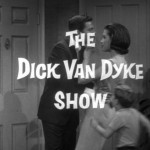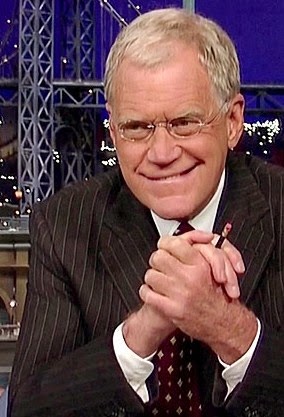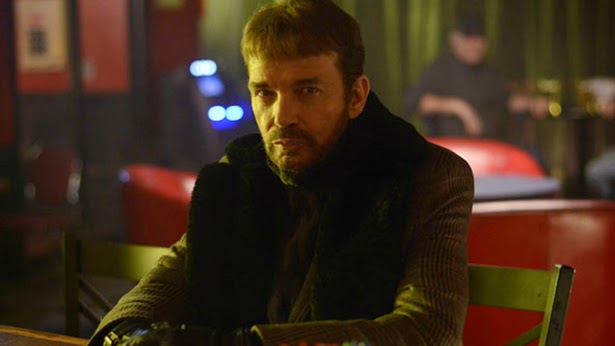Meant to post a heads up on the premiere of Prohibition on Sunday but I was too hung over.
The latest PBS epic documentary from Ken Burns and Lynn Novick premiered Sunday night with Part One: “A Nation of Drunkards.” I tried to watch but passed out with my friend Jack Daniels.
Actually I screened Part One several weeks ago and wondered if it might have passed quicker with liquor. I felt it could have been told in one hour instead of two. If you’re just coming at this series tonight, congratulations, you missed the dull part.
Burns explained last July in Los Angeles at the semi-annual Television Critics Association press tour that, in his mind, the series needed a detailed set up. People need to know what compelled America–alone among nations–to ban booze. Audiences are probably not aware that the average American before prohibition drank three times what they consume today. “We were awash in alcohol in the 19th century,” says Burns.
The 58-year-old filmmaker–still working that Beatles haircut–was as articulate as ever at press tour. Here’s how he drew a through line from the temperance movement of yesterday to the Tea Party movement of today:
I feel compelled, as I often do, to quote the Old Testament, specifically Ecclesiastes 1:9.
“What has been will be again. What has been done will be done again. There is nothing new under the sun.” If I told you that I had been working with Lynn for several years on a film about single issue political campaigns, wedge issue campaigns that metastasized with horrible unintended consequences, if the story was about the demonization of recent immigrants to the United States and, as always African Americans, if I told you we’d been working on a film that involved smear campaigns during presidential elections or unfunded congressional mandates or, more importantly, a whole group of people who felt they’d lost control of their country and wanted to take it back, you would insist that we had abandoned our historical interests and were covering the contemporary political scene…
Indeed, the parallels are striking in Prohibition. Burns had to show the story leading up to this extraordinary call to amend the U.S. constitution to ban the sale of alcohol. it is an eye opener how easily the amendment passed and, then, just 13 years later, how easily it was repealed.
Part Two, airing tonight at 9 p.m., gets to the sexy, violent part of the tale. Enshrining a faith-driven moral code into the U.S. constitution just leads millions of Americans to re-think the definition of morality. Crime became cool, as seen over at HBO’s Boardwalk Empire.
Burns says he’s delighted Boardwalk Empire is on right now and says creator Terry Winter has done his homework. He’s not surprised at its success. “Americans always love to watch people who get to kill people that piss them off and women who take their clothes off at the drop of a hat.” True but why? Prohibition provides the Boardwalk back story; it’s like a five-and-a-half hour historical primer for the HBO series.
 |
| Capone: the mob boss was in the klink by his 30s |
In case you think these black-and white documentaries are just for middle-aged history nerds, my 18-year-old son was locked into this series. Burns and Novick make great use as always of the beautifully-restored archival footage and stills, adding sound FXs and the great American jazz score of the ’20s to keep things keen. The voices you hear bearing witness to the era belong to a Who’s Who of Hollywood, including Tom Hanks, Paul Giamatti, Jeremy Irons, John Lithgow, Amy Madigan and Sam Waterston. The series is narrated by Burns’ favourite Peter Coyote. Everything is thoroughly researched. Daniel Okrent, a consultant on the series, tells the same run-soaked story in book form in Last Call: The Rise and Fall of Prohibition.
The real life characters and organizations are all compelling. Besides obvious guys like Anheuser Busch, Al Capone and U.S. president Herbert Hoover (who, Okrent reveals enjoyed two cocktails a night), bootlegger George Remus has a story with so many twists and turns he shows up on Boardwalk this season. The Women’s Christian Temperance Union is still around, says Burns, and still has members who vow that, “lips that touch wine will not touch thine.”
My own mother, born in Scotland during the prohibition era in America, would occasionally repeat a memorable variation on that: “Lips that touch liquor will never touch mine.” “Your lips?” “No, my liquor.” This undoubtedly was followed by “Cheers” by my Irish and Scottish uncles and aunts. Prohibition was not the law in Canada and in fact Canadian breweries and booze factories were spun into overdrive keeping up with demand for their bootlegged bottles. Okrent and Burns relate how Canadian Club was snuck into America for medicinal purposes and how patients could refill their CC orders every 10 days.
Prohibition was not the law in Canada and in fact Canadian breweries and booze factories were spun into overdrive keeping up with demand for their bootlegged bottles. Okrent and Burns relate how Canadian Club was snuck into America for medicinal purposes and how patients could refill their CC orders every 10 days.
One of the illuminating things about the series is how ineffective a quick political fix can be. As Burns told critics, the notion that you could fix everything about society if you could eliminate alcohol was thoroughly debunked. “We not only didn’t fix everything about society,” says Burns, “we made half the nation lawbreakers, and we created organized crime and a host of other horrific unintended consequences, and I think it’s given us in America pause.”
With a clearly defined beginning, middle and end, Prohibition falls neatly into its three parts. Tonight’s is titled “A Nation of Scofflaws” (people who habitually violate the law) and Tuesday’s finale is “A Nation of Hypocrites.” If you missed Sunday’s opener take two stiff drinks and you’ll catch up in no time.







